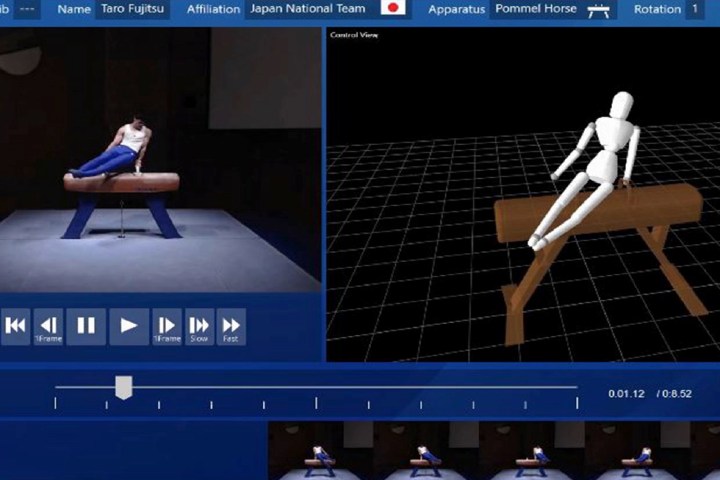
Lidar, the laser-bouncing tech used in self-driving cars, is pretty versatile. When it’s not making autonomous vehicles smarter, it can be used for uncovering lost cities, finding bodies in unmarked graves, helping protect areas from wildfires, and … judging athletic contests?
That’s the application that Fujitsu has in mind with a new lidar-based system it thinks could help human judges assess gymnastics judging — or potentially even replace the need for flesh-and-blood judges altogether.
The idea behind the project is that gymnastics judges have to evaluate routines involving highly precise maneuvers. Due to human errors of judgment, however, scoring can vary, leading to accusations of bias or favoritism. Fujitsu’s technology will use bounced lidar to create 3D images of gymnast bodies as they perform routines, letting judges examine something closer to the skeleton of participants without all those distracting muscles and skin getting in the way. The system can reportedly judge information about the angle of specific joints with an accuracy level that’s within one centimeter of the real thing. Eventually, Fujitsu hopes to go even further by adding an artificial intelligence component for judging these routines.
The joint-recognition tech is set to be trialed at an upcoming International Gymnastics Federation (FIG) World Cup event and also used during competition at the 2019 World Championships. Automated scoring could follow in 2020, although don’t expect human judges to vanish from the judging table altogether. Instead, it seems that Fujitsu is viewing this as an accompaniment to human judges as opposed to a replacement for them altogether.
This is far from the first time that A.I. technology has been used to augment (or replace) human judges in a variety of capacities. Whether it’s granting or denying bail, reading X-rays and other medical documents, or making predictions about which movies studios should make or startups venture capitalist firms should invest in, machine analytics is frequently used to try and reduce human errors in a wide variety of tasks requiring judgment. It only figures that sport should be one of the next frontiers.
Our biggest question: Given advances like Boston Dynamics’ parkour-performing Atlas robot, how long before humans are dropped from the competition aspect, along with the judging?


